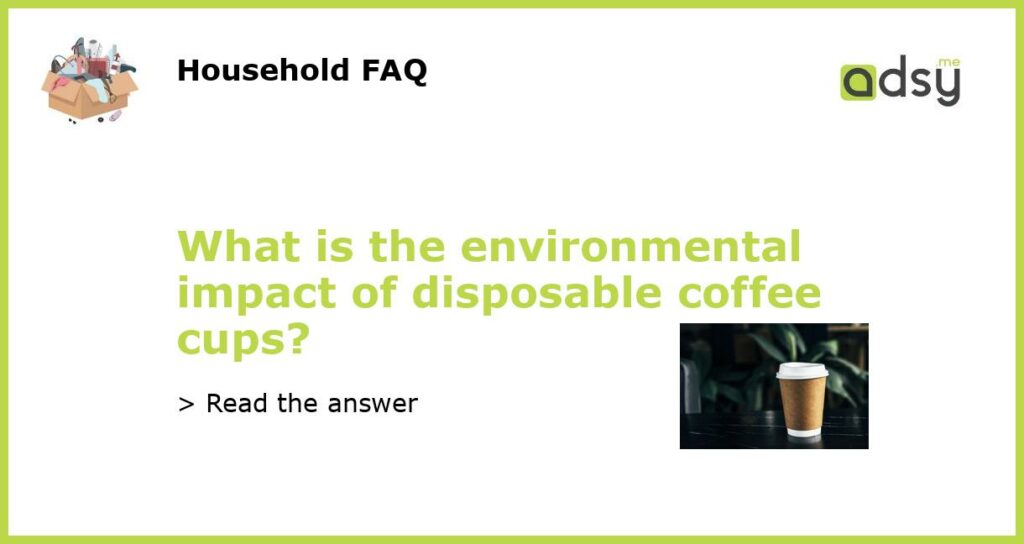The problem with disposable coffee cups
The convenience of disposable coffee cups cannot be denied. However, this convenience comes at an enormous cost to the environment. Disposable coffee cups are a significant contributor to the growing problem of plastic pollution. Despite popular belief, disposable coffee cups are not recyclable in conventional recycling facilities due to the plastic lining inside.
The facts and figures
The statistics surrounding disposable coffee cups are alarming. According to Ecoffee Cup, over 300 billion cups are produced globally each year, with less than 1% being recycled. In the UK alone, an estimated 3 billion disposable coffee cups are thrown away every year, with just 1 in 400 being recycled. That’s a staggering 7 million cups per day ending up in landfill or polluting our oceans.
Alternatives to disposable coffee cups
The good news is that there are alternatives to disposable coffee cups. One of the most popular options is to use a reusable coffee cup, which can be made from glass, ceramic, or even bamboo. Many coffee shops now offer discounts to customers who bring their reusable cups, further incentivizing the use of sustainable alternatives.
The role of the coffee industry
The coffee industry has an important role to play in addressing the problem of disposable coffee cups. Coffee shops can offer incentives to customers who bring their reusable cups, introduce compostable coffee cups, or even refuse to stock disposable cups altogether. By taking a proactive approach, the coffee industry can make a significant difference in reducing its impact on the environment.
The power of individual action
Ultimately, the solution to the problem of disposable coffee cups lies in individual action. Each person who switches to a reusable coffee cup makes a difference, no matter how small. By making the conscious decision to use sustainable alternatives, we can all play a part in reducing our impact on the environment and creating a more sustainable future.






